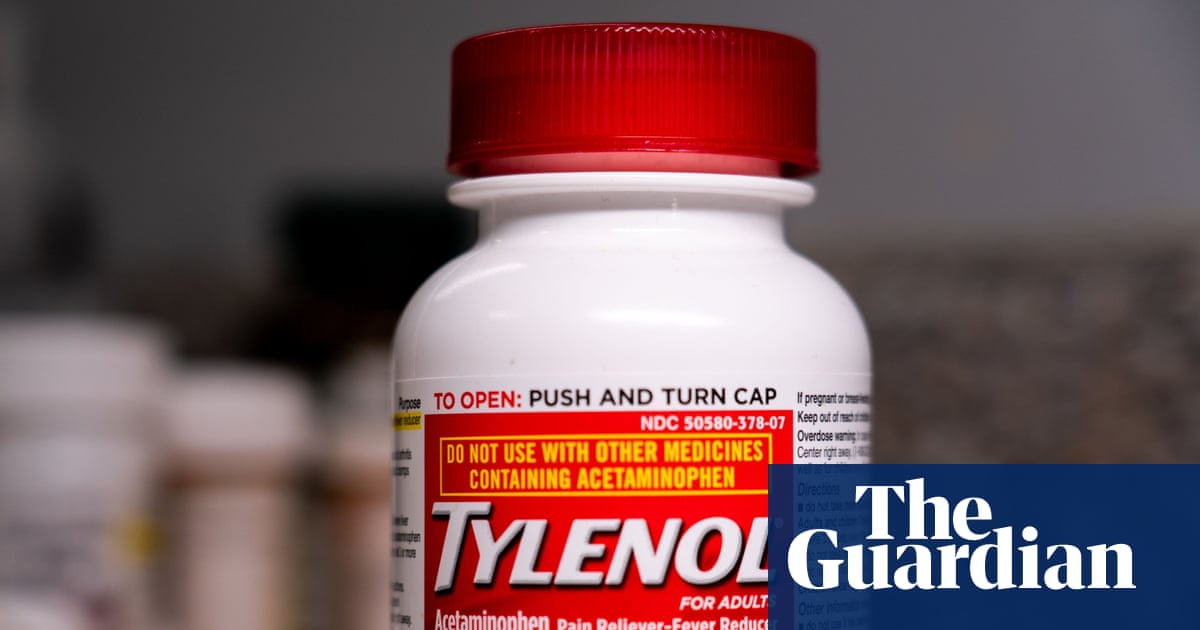Send this page to someone via email
Health Canada says there is “no conclusive evidence” that using Tylenol as directed during pregnancy can cause autism or other neurodevelopmental disorders in newborns.
The advisory issued Wednesday is the latest pushback on claims raised by U.S. President Donald Trump and his top political health appointees this week, which were not backed by any new evidence or research.
“Acetaminophen is a recommended treatment of pain or fever in pregnancy when used as directed,” the Canadian advisory says, using the generic name of the drug commonly marketed as Tylenol. “It should be used at the lowest effective dose for the shortest duration needed.
“Untreated fever and pain in pregnant women can pose risks to the unborn child,” it adds.
The advisory notes that acetaminophen has been used safely by millions of Canadians for decades, “including during pregnancy and while breastfeeding.”
Story continues below advertisement
Health Canada says taking too much of the drug can cause other harms, including “serious harm” to the liver.
Patients who are pregnant or breastfeeding and have questions about the use of any medications are urged to talk to their doctor, and contact a health-care provider if their pain lasts for more than five days or if fever lasts over three days.
4:27 ‘Don’t take Tylenol’: Trump, US health officials tie use to autism
During a White House news conference Monday, Trump repeatedly warned pregnant women not to take Tylenol “during the entire pregnancy.”
Get weekly health news Receive the latest medical news and health information delivered to you every Sunday. Sign up for weekly health newsletter Sign Up By providing your email address, you have read and agree to Global News' Terms and Conditions and Privacy Policy
He said the U.S. Food and Drug Administration would begin notifying doctors that the use of acetaminophen “can be associated” with an increased risk of autism, but did not immediately provide any medical evidence for the FDA’s new recommendation.
“Fight like hell not to take it,” Trump said, urging pregnant women to “tough it out” through their pain or fever instead. He added that if a patient feels they absolutely have to take Tylenol, that will be something that they “work out with themselves,” but also said there’s “no downside in not taking it.”
Story continues below advertisement
The claims are supported by U.S. Health and Human Services Secretary Robert F. Kennedy Jr., who joined Trump at the announcement along with Medicaid and Medicare Services Administrator Dr. Mehmet Oz.
Oz, who hosted a daytime medical show for over a decade before entering politics, told TMZ on Tuesday that Tylenol may still be prescribed by doctors to pregnant women suffering from high fevers, and that
“Take it when it’s appropriate,” Oz said, adding Tylenol is “probably your best option” in fighting low grade fevers that don’t require hospitalization.
He also warned Americans not to make “health-care decisions based on their politics” and that Trump’s “bold” announcement was “based on the science.”
The Society of Obstetricians and Gynaecologists of Canada last week said they found no causal link between prenatal exposure to acetaminophen and certain neurodevelopmental disorders after a review of available evidence, saying they wanted to get ahead of Trump’s expected announcement.
The society also made it clear that fever and pain, left untreated, can have serious complications during pregnancy, echoing guidance from the Society for Maternal-Fetal Medicine.
“Untreated fever has been associated with miscarriage, fetal organ malformations, fetal cardiovascular complications, and even Autism Spectrum Disorder,” the statement said.
“Untreated pain can lead to depression, anxiety, and high blood pressure, which also have adverse effects on pregnancy. Access to effective pain management is considered a human right, which women should not be denied just because they are pregnant.”
Story continues below advertisement
The American College of Obstetricians and Gynecologists has also not changed its stance on acetaminophen’s safety despite Trump’s claims.
2:34 Health Matters: Tylenol still safe to use in pregnancy, SOGC says
While some studies have raised the possibility of a link between autism risk and using acetaminophen during pregnancy, they are observational studies that compare health records and autism traits in children. Those kinds of studies cannot tell if the painkiller had a direct impact on autism, or if it was a fever or other health issue that prompted the need for the pill.
A 2021 position paper by the SOGC said purported evidence of a causal link between Tylenol and autism is based on fundamental flaws that should not change current clinical practice.
It said factors known to increase the risk of neurodevelopment in children, such as genetics and certain health conditions, are not taken into account in those studies and medical journal editorials.
Story continues below advertisement
The Coalition of Autism Scientists notes that use of acetaminophen and related pain relief drugs during pregnancy hasn’t increased in recent decades like autism rates have.
Oz cited an August study by health researchers at Harvard and other U.S. medical schools that warned prenatal use of acetaminophen could increase the risk of autism and ADHD in children.
That study, based on a review of previous studies that made the same connection, recommended “judicious” use of the painkiller at the lowest possible dose to treat fever and pain, while highlighting the risk of prolonged use for weeks at a time.
— With files from The Associated Press and The Canadian Press
[SRC] https://globalnews.ca/news/11448279/tylenol-pregnancy-autism-health-canada/
 Visit the website
Visit the website







